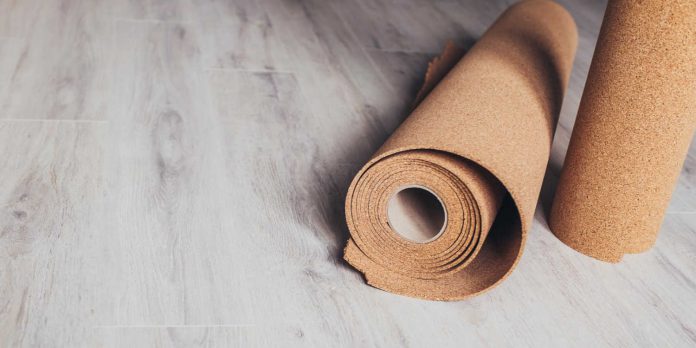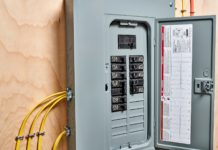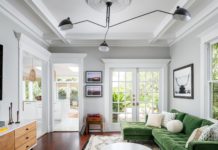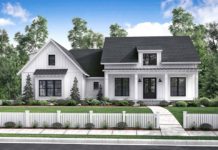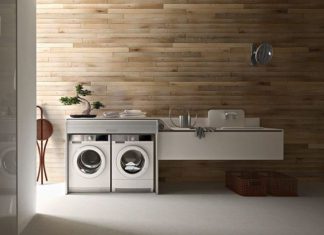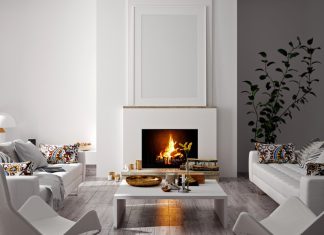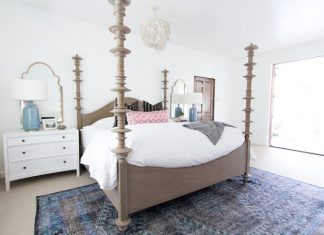The first thing to look at is what type of noise pollution you are suffering with. If it is coming from external sources or internal. The external noise needs to be blocked before it gets into your space, whereas the internal will need to be reduced between floors, rooms and within the room you can reduce the acoustic reverberation.
Your home, office or studio environment may need a combination of sound proofing materials to completely block out unwanted excess noise.
What type of soundproofing you can install will also be dependent on other factors. For example you are constructing a new space, this will give you scope to install inside the walls and ceilings at construction level. However, if you are trying to soundproof an existing room or building, then you will need to install your soundproofing as an additional layer over your existing walls and ceilings.
Soundproofing High Density Panels (SoundBlockers)
If you want a completely soundproof environment, then a combination of methods is usually recommended. It is important to think whether you want to completely block out unwanted noise or to improve the sound within the space. A recording studio or home theatre for example would benefit from improving sound quality rather than just blocking external noise.
You can install a soundproofing layer within a stud wall. Use high density panels to block sound from passing through walls and acoustic insulation slabs to absorb the sound waves.
Sound blockers are heavier and thicker materials that reflect the noise. Acoustic slabs combined with sound breaker bars, acoustic sealant and acoustic plasterboard will soundproof your wall. You would need to have them installed in walls, ceilings, floors and doors to achieve full soundproofing.
It is important to remember that you need to create separation to reduce the sound vibration as it travels through the structure of the wall. To do this you can use SoundBreaker bars and acoustic hangers.
While it is easier to install these sound blockers at construction stage, you can also create a ‘false’ wall or ceiling to install them. This would usually require removing the existing plasterboard to expose the cavity and stud work.
Sound Absorption Panels (Acoustic Panels)
Sound absorbing materials are usually lighter and prevent noise from bouncing around inside the room.
These foam panels can be applied to the surface of walls and are often used as the finish for the surface. As they can be applied on top of plasterboard, they are available in a variety of colours, textures and styles.
While these panels won’t completely block sound they do dramatically reduce the noise pollution travelling between rooms.
Acoustic Mineral Wool Insulation
Acoustic mineral wool insulation can be used during construction phase to act as both a layer of soundproofing and for insulating your room. It is not the sort of thing that is easy to use for a simple DIY project.
The acoustic mineral wool is a non-organic material that will reduce noise pollution, but it is not as effective as sound blocker panels, or as easy to install. It needs to go between the layers of your wall or ceiling, so is only really suitable for the construction phase.
Acoustic Underlay and Floating Floors
By combing underlay mats with acoustic insulation you can achieve an effective soundproofing solution against both impact and airborne sounds.
For more heavy-duty soundproof flooring then a noisedebck floating floor can be installed over existing floors or directly onto floor joists. This will cut out the reverberation and echo sounds between floors almost entirely.
There are many ways to protect your environment from unwanted sound pollution, but these are some of the most effective ones. If you are unsure what system would be best for you, then please contact a soundproofing specialist and ask for their advice.
It is also worth noting that building regulations for soundproofing requirements will not always be enough to fully soundproof your home. It is worth speaking to an expert at Noise Stop Systems to determine what thickness your panels should be to achieve the level of soundproofing you require.
